#drc music
Text

Silly lil collage I did for damon’s birthday lol
#gorillaz#damon#damon albarn#blur#the good the bad and the queen#rocket juice and the moon#DRC music
49 notes
·
View notes
Text
album review; drc music's kinshasa one two
☆ 7.4/10
♡ released in september 2011
♡ congolese; afrobeats; trip hop; electronica; world beat; ndule
This album was definitely a lot different than my usual album reviews. A full instrumental album that attempts to mix electronica & afro beats, which, surprisingly, succeeds on a lot of the tracks! I’m definitely still not sure how I feel about the album, nor do I feel like I can accurately review it, but I do know I heavily enjoyed the tracks, even the ones I didn’t find myself falling in love with.
A song by song review can be found underneath the cut. My favorite tracks are African Space Anthem, Respect of the Rules, Ah Congo, and If You Wish to Stay Awake. My least favorite tracks are Hallo, Lingala, Virginia, American, and Congosmo.
Hallo -> 6/10
K-Town -> 8/10
African Space Anthem -> 9/10
Love -> 7/10
Lingala -> 6/10
Lourds -> 8/10
Respect of the Rules -> 9/10
We Come from the Forest -> 8/10
Customs -> 8.5/10
Virginia -> 6/10
Ah Congo -> 9/10
Three Piece Sweet Part 1&2 -> 8/10
If You Wish to Stay Awake -> 9/10
Departure -> 7.5/10
Americaaan -> 6/10
Congosmo -> 6/10
Lourds (Heavy) -> 6/10
#drc music#damon albarn#kinshasa one two#blur#gorillaz#2011#congolese#afrobeats#trip hop#electronica#world beats#ndule#album review#oct
2 notes
·
View notes
Audio
(via Hallo (featuring Tout Puissant Mukalo and Nelly Liyemge) by DRC Music)
“Kinshasa One Two was made during 5 days of sessions in Kinshasa this summer when the DRC Music collective teamed up with the best of contemporary Congolese musicians and performers. The collective comprises the eclectic production talents of: T-E-E-D (Totally Enormous Extinct Dinosaurs), Dan The Automator, Jneiro Jarel, Richard Russell, Actress, Marc Antoine, Alwest, Remi Kabaka, Rodaidh McDonald and Kwes, with album artwork by Hardy Blechman and Aitor Throup”.
Check out the final track - https://soundcloud.com/drcmusic/departure-feat-bokatola-system
The full album - https://soundcloud.com/drcmusic/sets/kinshasa-one-two and on Bandcamp, https://warprecords.bandcamp.com/album/kinshasa-one-two
0 notes
Video
youtube
African dance is in the blood #music #africa #grandma #trending #viral #dance #shorts
0 notes
Text
#democratic republic of the congo#dr congo#free congo#save congo#congo#drc#big tech#technology#tesla#apple computers#apple phone#apple news#apple music#apple tv#apple watch#apple#samsung phones#samsung phone#samsung#samsung tv#google phone#google maps#google play#google tv#google music#google
70 notes
·
View notes
Text
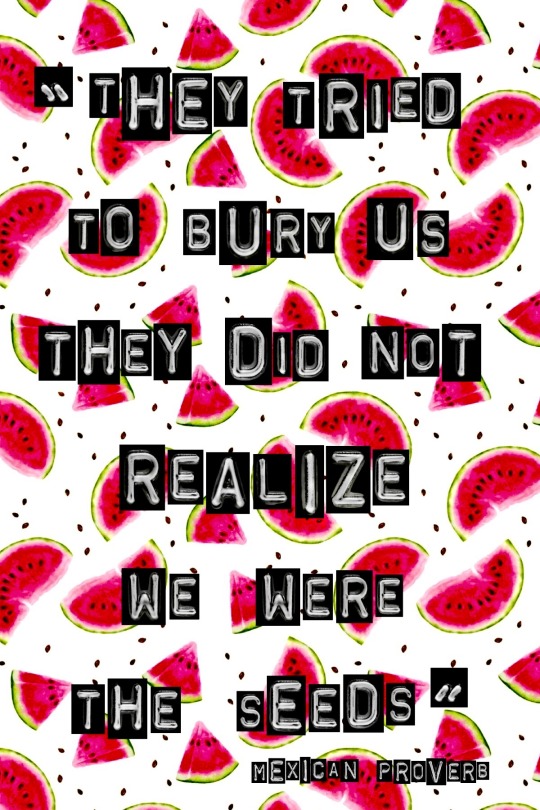
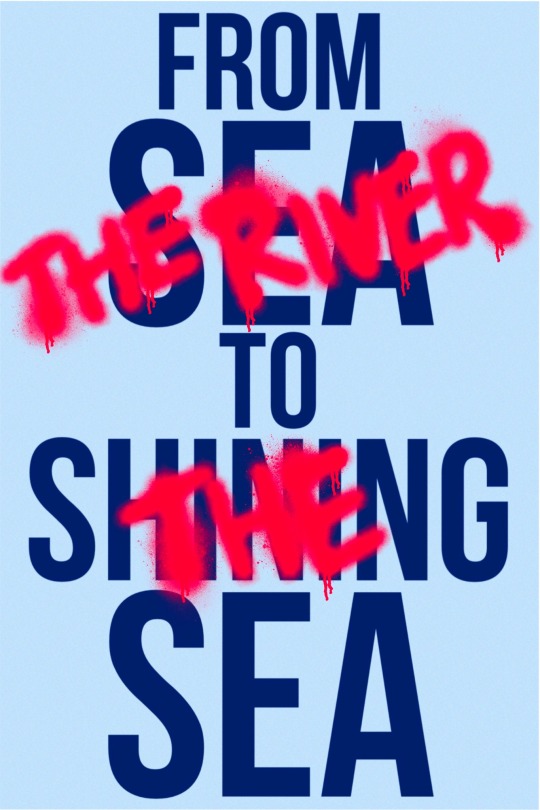
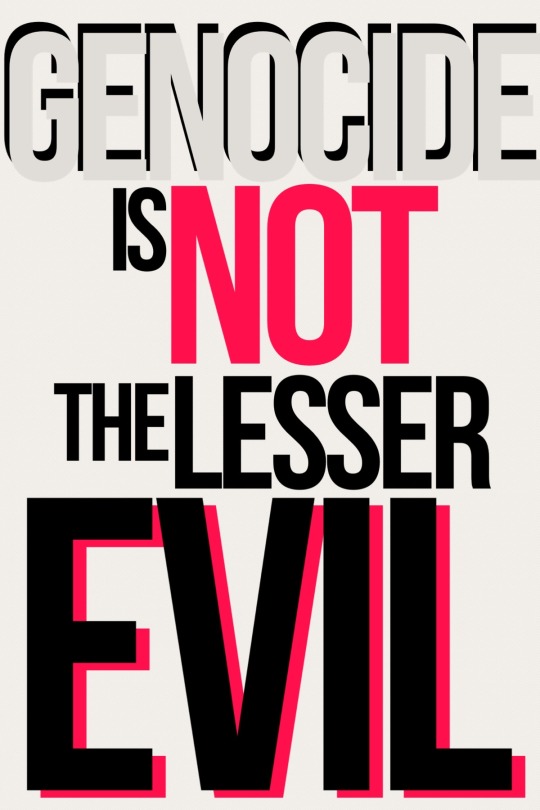
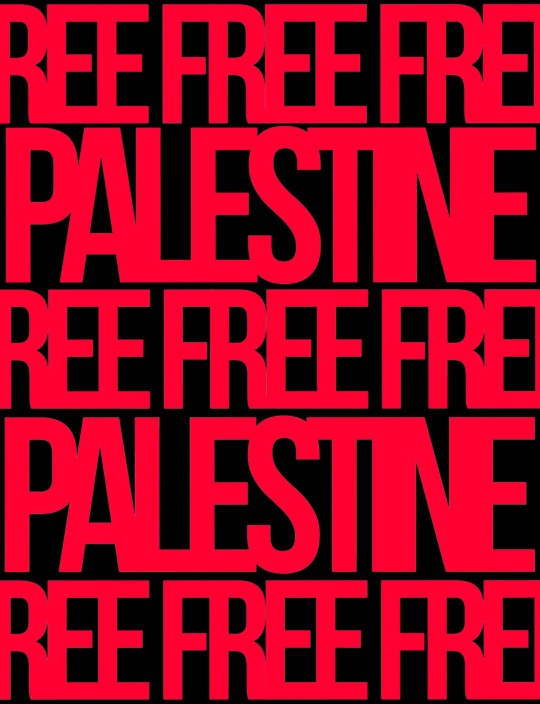
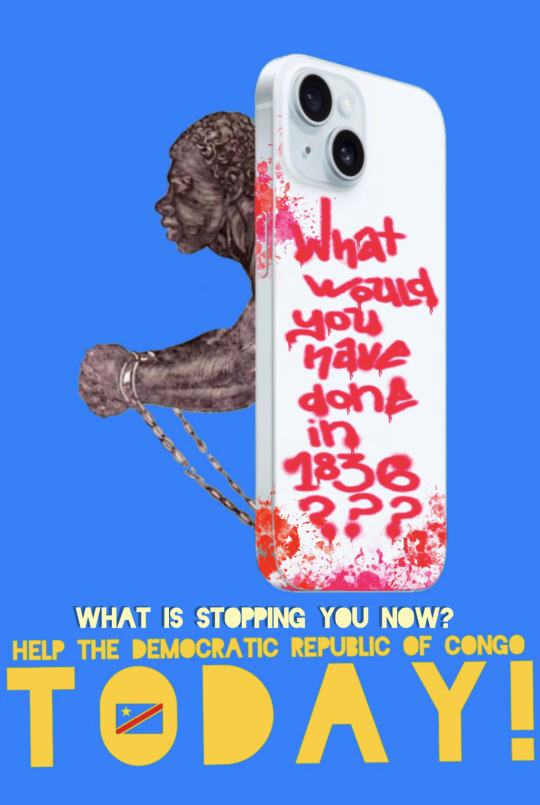
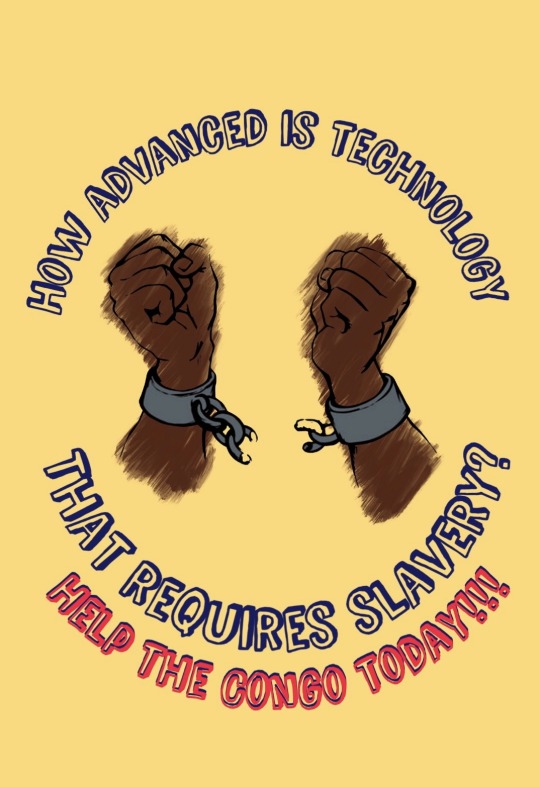
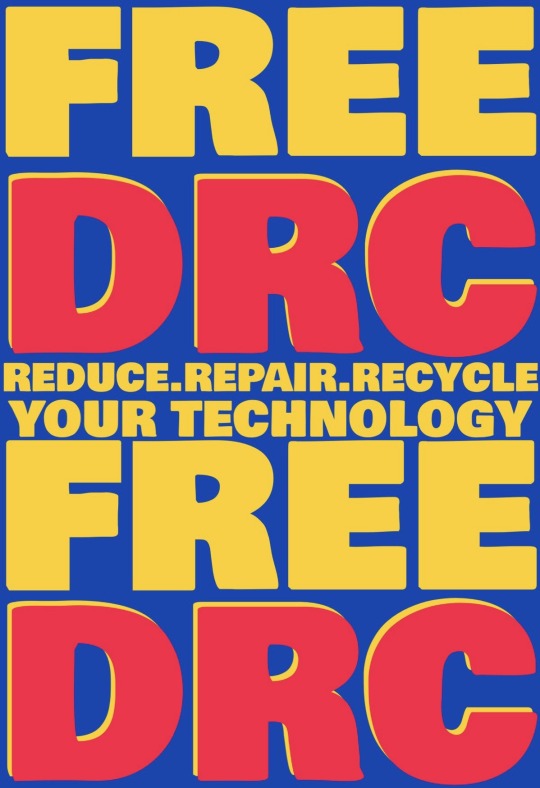
Protest art. 💖✊🏾🖌🇨🇩🇸🇩📲🗣👥👥👥
Save the JPEG. Convert it to PDF. Print it at your local print shop. Print it at your local library. Print it at work. Print it at school.
Copy it free hand.
No credit needed.
Making more soon for Sudan & The Uyghurs in China. Stay tuned. Follow for more.
#afrocentric#black ppl#black culture#black artist#black history#inspiration#freepalastine🇵🇸#free gaza#free the drc#save congo#activism#democratic republic of the congo#palestine#israel#slavery#tech#technews#colonization#anti imperialism#liberation#fight the power#capitalism#apple music#spotify#Middle East#Africa#Sudan#uyghurs#china#tik tok ban
16 notes
·
View notes
Text
Who will unruin this generation
#aja monet#poetry#music#free palestine#free gaza#i stand with palestine#resistance#palestine#decolonization#free sudan#free yemen#free lebanon#free drc#free hawaii#land back#Spotify
5 notes
·
View notes
Text

5 notes
·
View notes
Text
need more congolese mutuals on my tl , where my ppl at
les congolais et congolaises de tumblr vous êtes ou
if you’re from / in paris DM me
#rdc#rd congo#drc#dr congo#congolese music#sebene#congolese rumba#ndombolo#seben#kongo#kinshasa#wenge musica#werrason#ferre gola#jb mpiana#zaiko#koffi olomide#king kester emeneya#papa wemba#quartier latin#fally ipupa#fallyipupa#french#français#lingala#paris#france#243#🇨🇩#🇫🇷
42 notes
·
View notes
Audio
Listen/purchase: Pitschu Debou by DJ Finale
#afrobeat#electronic#world music#afrofuturism#kalindula#lingala#soukous#Kampala#Fulu Miziki#DRC#DJ Finale#Bandcamp#music
4 notes
·
View notes
Text
"We organized the very last show in 2023..."
Whether to address societal issues or personal traumas of people, forum theatre coupled with psychodrama have been used by NGOs in a number of tormented African nations.
The Brazilian theatre practitioner, Augusto Boal, is known as the creator of forum theatre – an interactive form of theatre in which the audience becomes “spect-actors” when they intervene and change the course of the play. Psychodrama occurs as the actors portray their real-life struggles and explore their anguishes. Spreading messages of awareness and resilience through masquerade and embryonic dramas has been around in Africa since times immemorial. But Boal’s method of forum theatre is now being applied in an effort to unite Africans in regions of tension.
In the book Art and Conscientization (2015), Claus Schrowange writes about his experiences of developing and organising plays with groups in Uganda, Rwanda, South Sudan, and the Democratic Republic of Congo “for the promotion of peace, human rights, and sustainable development”.
According to him, “The ideal Forum Theatre performance is indoor with 20 to 100 spectators, in a hall of the size of one to three classrooms. The larger the audience, the less intense the program. ... Actors should not use microphones, not even during open air performances. Microphones destroy the natural voice which is necessary to project emotions to the audience. ... Our actors only wear uniform T-shirts, most of the time in black and white, with black trousers or skirt. They remove wristwatches, necklaces, earrings and any other item that attracts unnecessary attention. In order to open the senses and energy flow and make better use of their body, they always perform barefoot. ... The play is the heart of the activity. Our goal is to leave the audience astonished, inspired, confused, and enlightened at the same time. We motivate them to become active in their daily lives and within their limited means and powers, to act against all kinds of injustice, violence and Human Rights abuses. ... The actors don’t need to be experts in theatre, but they have to be open to discover themselves and share their real emotions on stage. Actors should act in the language they are using in their own daily life. When it is not possible, more emphasis should be given on the non-verbal expression and the verbal part should be reduced to a minimum.”
However, theatrical attempts to unite different African communities, especially those engaged in decades-long violence against each other, aren't easily welcomed. In areas prone to violence between militant groups and government forces, many adults and children end up becoming soldiers to survive in the absence of employment or education opportunities. The children get drugged and the women and girls are raped by armed men. The forcibly-displaced surviving civilians have deep emotional scars and distrust for NGOs.
“Africa independence was a masquerade, and most of the scourges that devastate this region are consequences of government irresponsibility, and the lack of some politicians’ awareness. They promulgate laws and change them, but they don’t ensure that the entire population has understood them: the first victims of this situation are not enlightened. This is the environment in which our Theatre of the Oppressed group is working,” writes Eliezer Kasereka who, along with his friend, once violently protested against plays organised by Schrowange in Kiwanja because his Theatre of the Oppressed mixed Rwandans and Congolese when there were allegations that Rwanda supported the rebel groups operating in eastern Democratic Republic of Congo. But Schrowange and his group were able to influence Kasereka into experiencing “the power that Theatre of the Oppressed has to change minds and heal hearts”.
Since the beginning of 2016, Joseph Tsongo, the founder and CEO of Amani-Institute ASBL, and his friend Eliezer Kasereka, supported by the NGO APRED-RGL, began to use “participatory forum theater in psychodrama style” to help the child soldiers, who had managed to escape from the deadly clutches of armed groups, reintegrate into the society that feared them. They used to host theatre workshops at least once a week in the north-eastern parts of the Democratic Republic of Congo.
Last month, we contacted Mr. Tsongo to learn when the last forum theater was held by him, considering the present crisis in the country. On April 2nd, 2024, he said, ...we organized the very last show in 2023 due to the deteriorating security situation in the region, as well as due to a lack of necessary resources. (His original reply in French: En effet, nous avions organisé le tout dernier spectacle en 2023 et cela en raison de la détérioration de la situation sécuritaire dans la région mais aussi par manque de moyens nécessaires.)
In this regard, worthy of mention is Milo Rau’s solution-driven political theatre, The Congo Tribunal, involving the “victims, perpetrators, witnesses and analysts of the Congo War in Bukavu/Eastern Congo”. It explores the war in Congo – triggered by the West-sponsored Rwandan Genocide (1994) and fuelled by the powerful capitalists’ greed for the country’s natural resources necessary to run the technology of the 21st century – that has claimed the lives of over six million Congolese people. Based on The Congo Tribunal, Rau’s opera called Justice is “the first lyric work on the crimes of transnational companies ever” developed with the victims of the Glencore copper mine accident at Kabwe, aiming to raise funds for them. Justice will be taking the audience "to the heart of the Congolese mining industry", at Tangente St. Pölten Festival in Austria on 30th April, 2024.
However, the Congolese people, struggling with the harsh realities of civil wars and continuous exploitations by the economically powerful nations, need much more international attention than they are receiving now.
#talk#finds#free congo#free drc#dr congo#eyes on congo#congo genocide#save congo#democratic republic of the congo#drc#theatre#musical theater#forum roleplay#Forum theatre
2 notes
·
View notes
Text
Lokua Kanza: Nakozonga (Clip Officiel)
youtube
3 notes
·
View notes
Text
i'm like searching random shit on tumblr tags looking for something and keep getting peoples posts i never would've seen otherwise being like I KNOW the playlists for [thing] would be so dry 🙄 and i go Hey even though it's literally true they're all bad but so is everything (<3) and then i go on that persons blog and all they post about is the annoying spn chodes acting like they're gods gift to faggots like can you please get a grip you reeking little flea.. your playlist titled "orgy in a haunted house ☠️" is 90% indie pop
#🐾#f slur#-_-#also offended not on their behalf but my own bc MY playlist is curated at least#it's curating. i'm curating it. it's different. and i'm special#also i drc i think popular songs are popular for a reason and if it's a road or stepping stone for someone to find new music who cares#like all those songs that trend on tiktok were popular before and will be popular after it doesnt make them Just a Tiktok Song#it's a music app of course there's going to be MUSIC TRENDS#it's like the more modern version of getting mad ur band is playing on the radio bc everyone will hear it#you can't gatekeep fucking kate bush and fleetwood mac 😭#But i can
2 notes
·
View notes
Text
instagram
5 notes
·
View notes
Text
#tiktok#america#china#big tech#democratic republic of the congo#dr congo#free congo#save congo#drc#congo#congo genocide#apple phone#apple news#apple tv#apple music#apple#samsung phones#samsung tv#samsung#tesla inc#tesla#google phone#google maps#google music#google play#google#google tv#google drive#google docs#technology
15 notes
·
View notes
Audio
Lady Aicha & Pisko Crane's Original Fulu Miziki of Kinshasa - N'Djila Wa Mudujimu (Nyege Nyege Tapes)
In 2003, Pisco Crane assembled a six-piece band from motivated and talented like minds in the Kinshasa slums where he grew up. Pisco had been involved with a handful of local rap acts when he was younger, but after meeting legendary instrument builder Bebson De La Rue, he was inspired to follow a new path. He set about building instruments from the discarded trash that surrounded his city: bits of old computers or oil cans were fashioned into bass guitars and drums, and keyboards were bashed together using springs, metal pipes, and offcuts of tubing.
If there was a core philosophy that guided Pisco at this stage in his journey, it was that everyone should have access to instruments, no matter where they come from or what their budget might be. And following in the footsteps of Bebson, Pisco locked into a Congolese tradition that touches on the eccentric genius of globally lauded artists like Konono Nº1 and Staff Benda Bilili. Over the years, Fulu Miziki's notoriety grew in the Kinshasa underground – their utopian vision of the future was infectious. Eventually, they were joined by performance artist, sculptor and fashion designer Lady Aisha, who offered the band unique colour and a soulful central focus.
Influenced by Kinshasa's street performance scene, Aisha helped the band devise vivid masks and costumes that were as electric and singular as the instruments they played, and the scene was set. In 2020, as the world was plunged into lockdown, footage of Fulu Mziki went viral and their star began to grow exponentially, with a video of the band preforming the track ‘Tikanga’ racking up millions of views on Facebook. The band used this opportunity to work on documenting their sound, and shored up at the Nyege Nyege studios in Kampala for a year to assemble a definitive album. Recorded by HHY & The Macumbas' Jonathan Saldanha, this record captures the band's furiously innovative mixture of industrial sonics, spiritual jazz, punk, and Congolese soukous pressure.
Pisco and Lady Aicha currently lead a different outfit in Kinshasa made up of completely new musicians. This full-length is the remaining proof of Fulu Mziki at their most vital and most complete – it won't be repeated – and can never be recreated. It's an essential portrait of one of the Democratic Republic of Congo's most innovative contemporary outfits, and some of the most surprising hybrid music you're likely to hear.
Produced, Recorded & Mixed by Jonathan Uliel Saldanha
Photography by Mantas Kvedaravicius.
Artwork & Graphic layout by Jonathan Uliel Saldanha
youtube
#fulu miziki#drc#république démocratique du congo#electronic#percussion#world music#krautrock#2022#nyege nyege tapes#jonathan uliel saldanha#pisco crane#lady aicha
7 notes
·
View notes